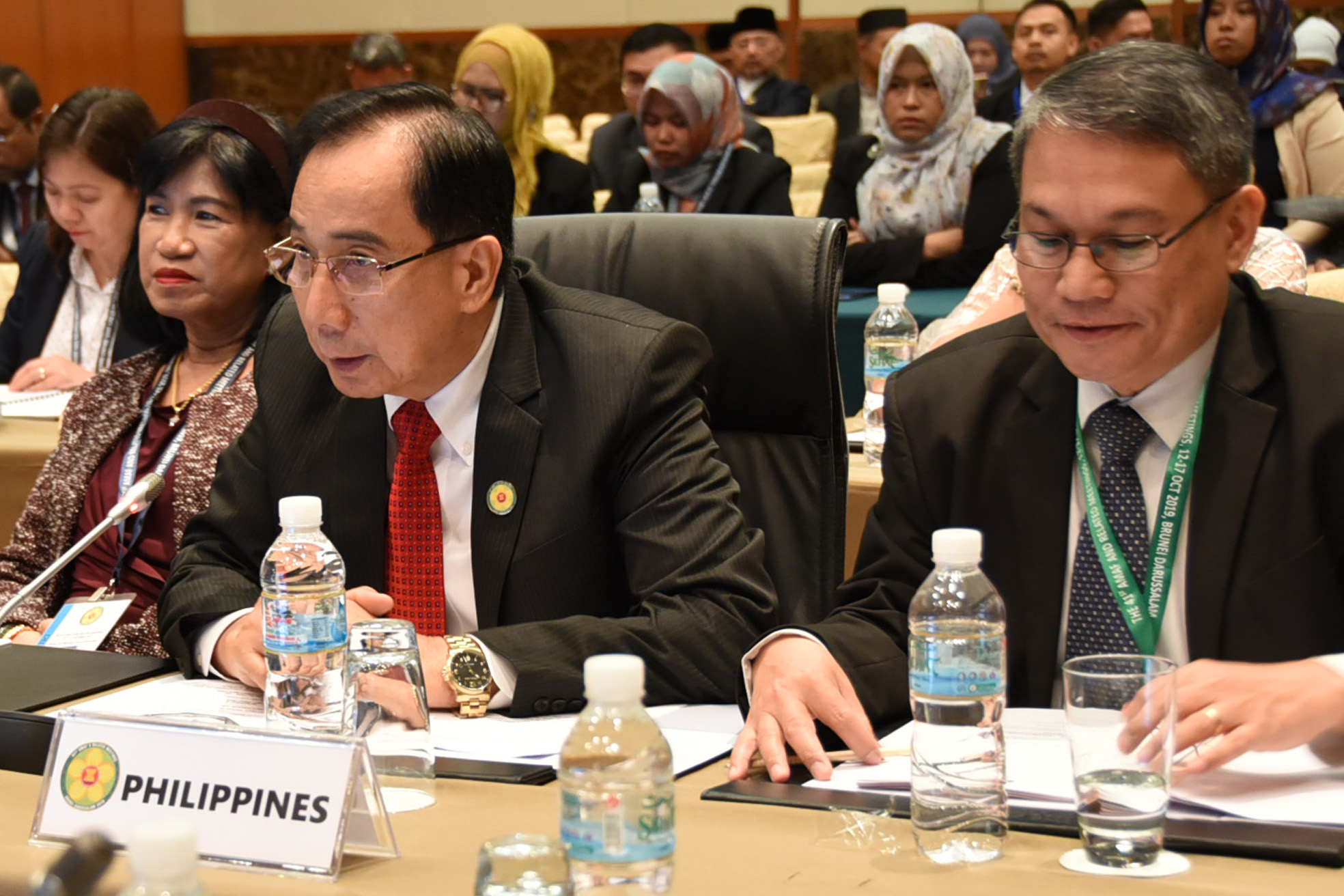
Agriculture Secretary and Head of Philippine Delegation William Dar called for greater collaboration among the ASEAN member-states in his opening statement during the 41st ASEAN Ministers on Agriculture and Forestry (AMAF) Meeting on October 15, 2019 in Bandar Seri Begawan, Brunei Darussalam.
“ASEAN must continue to forge win-win multi-stakeholder partnerships to realize our ASEAN Vision 2025: A politically cohesive, economically integrated, socially responsible, and a truly people-oriented, people-centered and rules-based ASEAN,” Dar said.
He mentioned how the ASEAN has provided the framework for Southeast Asian prosperity and how the various challenges including rapid population growth rates and social and economic forces in the global front were able to strengthen the partnership of each member-state.
“ASEAN must continue to be open and outward looking, strong in its advocacy, innovative in its quest for equitable progress, and united against any threat or issue it must face,” Dar said.
The Philippine AMAF leader also called on the member-states to work equally hard to nurture cooperation with dialogue partners and international organizations.
“In this era of globalization, ASEAN must assert its centrality,” he added
During the meeting, Dar introduced to the member-states the “New Thinking for Agriculture” as a development strategy that is geared toward a higher rate of growth and employment in the country.
Connecting it to food security and nutrition, which is a priority for cooperation among member-states, Dar mentioned how the “New Thinking for Agriculture” strategy will bring about inclusive growth and achieve abundant harvest and higher income for the agriculture sector.
He also provided updates on how the Philippines is addressing the African Swine Fever (ASF) and Fall Armyworm (FAW) including their economic consequences.
“We, as one economic community, must deal with this emergency through improved cooperation in the field of logistics, information, and technical assistance,” Dar reiterated.
He encouraged the continued cooperation and networking among member-states to share scientific knowledge and experience in addressing these two emerging issues in cost effective means. ### (Rita T. dela Cruz, DA Communications Group)













